
In the Vineyard :: May 8, 2021 :: Volume 21, Issue 9
National News
Re–Membering the Church: Moving Forward
Voice of the Faithful’s 2021 national conference will look closely at the body of the Church to see how structure, power, participation, and accountability can be brought together within the Church, fulfilling its mission of bringing Christ to the world.
The online Zoom conference takes place Oct. 22-23, 2021. At 7 p.m., Oct. 22, conference registrants can gather for free Zoom listening sessions to talk about issues affecting the Church today. The full-day conference on Oct. 23 will begin at 8:30 a.m., as registrants gather in a Zoom waiting room for the 9 a.m. start. Cost for our national online conference is $50.
VOTF supports a vision in the Church of openness and respect between clergy and laity, more inclusivity within the Church, and collaborations that lead to more activities and initiatives that reflect lay voices and community needs. As outlined at a previous VOTF conference, “There is no body without its members. There are no members without participation. There is no participation without mutual recognition and accountability. Structural change is possible. Accountability is necessary. Re–membering the church is essential.”
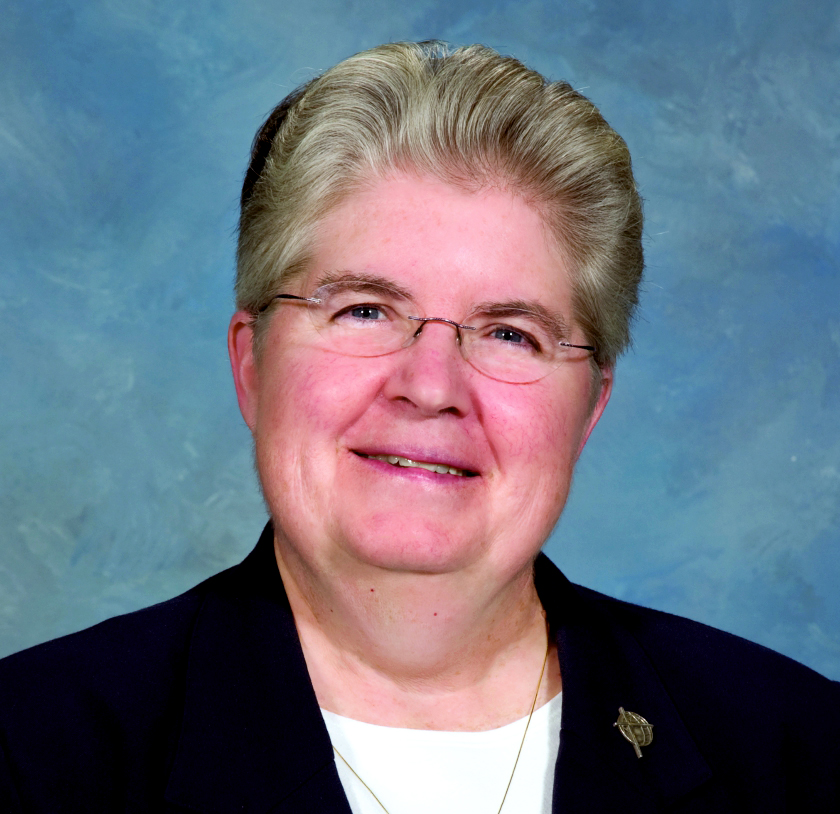
Our two featured speakers will offer their views on re–membering the Church. Speaking first on the
Our two featured speakers will offer their views on re–membering the Church. Speaking first on the morning of Oct. 23 will be Sister Carol Zinn, S.S.J. Ph.D. She is currently the executive director of the Leadership Conference of Women Religious and serves as Saint John Vianney Center consultant for women religious community health and transition. Formerly, she served as United Nations Economic and Social Council consultant. You can introduce yourself to Sr. Carol via this video from her presentation on Laudato si at the AUSCP Assembly in 2016. There are numerous others via the internet.
Following Sr. Carol’s Q&A period, Prof. Massimo Faggioli, Ph.D., will address the conference. Prof. Faggioli spoke at VOTF’s 2018 Conference, and his return is highly anticipated. He is a professor of theology and religious studies at Villanova University, a prolific author, and a leading international authority on Catholic Church history and ecclesiology, the inner workings of the Church. You can see Prof. 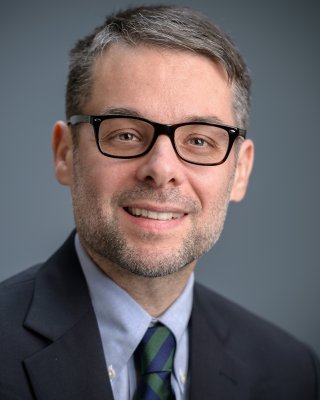 Faggioli’s address at our 2018 conference in VOTF videos. He has also written more than a dozen books; his latest is Joe Biden and Catholicism in the United States.
Faggioli’s address at our 2018 conference in VOTF videos. He has also written more than a dozen books; his latest is Joe Biden and Catholicism in the United States.
Also during VOTF’s 2021 Conference, a panel comprising women liturgy leaders from the Paulist Center Boston faith community will discuss lay-led liturgies, particularly during the COVID-19 pandemic. We’ll also have VOTF leaders reporting on our projects in diocesan financial transparency, Church governance by and through lay involvement in Diocesan Financial Councils, adherence to protection of children guidelines in parishes and dioceses, and women’s emerging voices in the Catholic Church.
Click here to register …(link is external)
Click here to download a registration form you can fill out and mail to VOTF …
Click here to register as an undergraduate student for FREE …(link is external)
Click here to see an agenda for the conference …
Women in the Church: A Plea in Song
John Crothers, a priest of the Catholic Archdiocese of Sydney, wrote a song asking the bishops to accept women in all ministries in the Church. It’s a catchy tune, and we thought it especially appropriate as we begin our collaboration with the Discerning Deacons effort (see below). Listen to “We All Know It’s Wrong.”
Discerning Deacons: A Growing Movement
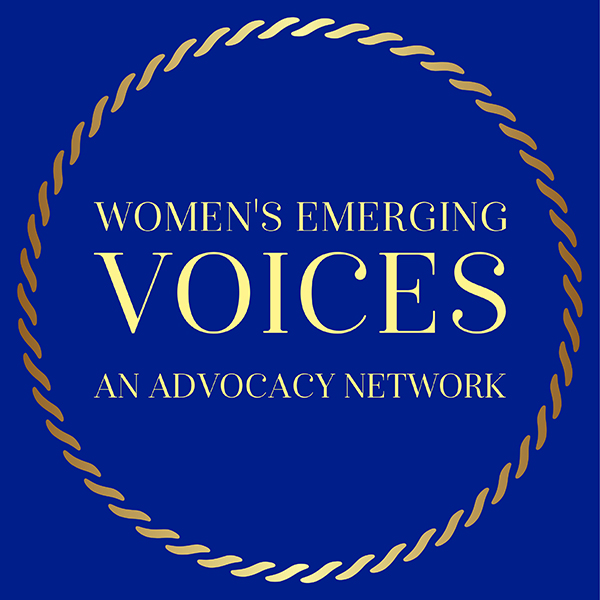
VOTF members Svea Fraser and Diane Hogan have been working these past weeks on a new Women’s Emerging Voices effort that will leverage VOTF’s association with other reform groups. A key part of that effort, Svea says, is the movement growing on behalf of women’s roles and specifically women in the diaconate. “Our commitment is to networking and connecting individuals and groups to this common cause, with VOTF as one of the platforms for resources and exchange of ideas.”
As one example, we have endorsed the Discerning Deacons project and will be linked with others sending a shared message for this ambitious project. The first message is for the “launch week” of the project. Here’s a note that Luke Hansen, one of the organizers, posted:
Our hearts are filled with gratitude for everyone who participated and made [Launch Week] possible. More than 50 people participated in Zoom calls on Monday and Friday. This group alone sent more than 5,800 emails to share the good news about the Church’s discernment of women deacons. Our new website received more than 1,800 unique visitors from 10 different countries. More than 100 people have signed up for Welcome Calls. Last Thursday, the Feast of St. Catherine of Siena, about 325 people participated in the Boston College School of Theology and Ministry webinar that featured the Discerning Deacons team. These are signs of hope that Catholics are excited to participate in this conversation and to see it bear fruit.
St. Catherine of Siena writes, “Be who God meant you to be, and you will set the world on fire.” It’s a powerful invitation and challenge for all of us together, as a Church.
Svea also worked with the Association of U.S. Catholic Priests, FutureChurch, and others on a white paper presented at the annual AUSCP Assembly. She notes, “Our white paper raised the issue and shed some light on the ‘signs of the times’ and the need for women’s roles to be publicly acknowledged.”
Still, questions remain, such as: What now? What can we do today that brings about a better future for women currently without recognized authority in a male hierarchy? Collaboration among those participating in the Discerning Deacons effort can bring answers.
Lay Involvement in Church Governance Mini-Synod
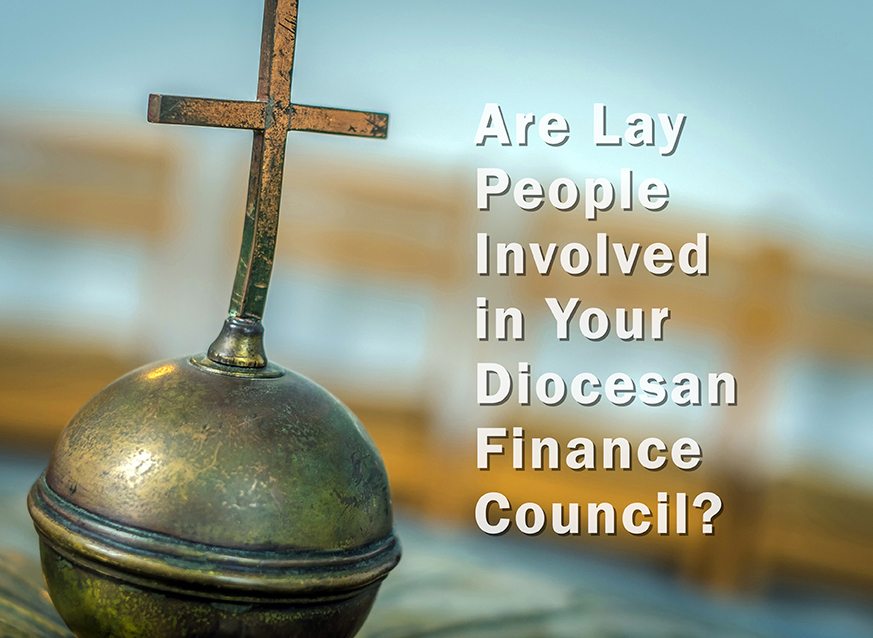
Join us to discuss “Lay Involvement in Church Governance by and through the Diocesal Finance Council” at this Voice of the Faithful mini-synod.
Join us to discuss “Lay Involvement in Church Governance by and through the Diocesal Finance Council” at this Voice of the Faithful mini-synod.The importance of lay involvement in Church finances cannot be overstated. If the laity had known about the secret “hush money” paid to clergy sexual abuse victims as early as 1985, when widespread abuse was first reported, much of the suffering of the scandal and cover up might have been avoided.
WHAT: “Lay Involvement in Church Governance by and through the Diocesan Finance Council Mini-Synod”
WHEN: Saturday, May 15, 2021, 10 a.m. EDT.
REGISTER: https://www.surveymonkey.com/r/VOTFLayGovDFC(link is external)
Among the participants in this online (Zoom) Mini-Synod will be John W. O’Malley, S.J., a Georgetown University Professor, author, and Church historian expert in Church councils and governance. (See Who Governs the Catholic Church? It’s an Open Question.(link is external) in America magazine.)
Some areas we will discuss:
- Were you aware that Canon Law requires every diocese to have a Diocesan Finance Council? Does your diocese have one?
- Were you aware that under Canon Law the DFC must give or withhold consent to the bishop on certain important financial matters?
- Is a DFC charter/by-laws publicly available on your diocesan website?
- Does your diocese provide public information on the membership of the DFC?
- Would DFC members have a duty under Canon Law to disclose financial malfeasance to the diocesan faithful? If malfeasance exists within their diocese, how might they discover it? To whom should they report it?
Click here for excerpts from Canon Law pertaining to DFCs.
Click here for excerpts from USCCB Diocesan Finance Management Guide.
Please consider inviting members of your Parish and Diocesan Finance Councils and your friends to join us for this Zoom conversation.
VOTF Church Governance Initiative
This fall VOTF will conduct its first review of U.S. diocesan websites to find out what Catholics can learn about the operation of their Diocesan Finance Council and the level of lay involvement in diocesan finances. Click here to read the worksheet VOTF will use for this review.
USCCB Launches Lay-Focused Efforts
The United States Conference of Catholic Bishops (USCB) Secretariat of Laity, Marriage, Family Life and Youth has published a new directory of lay movements and organizations in the U.S. “This directory will be helpful for those laypeople who may be looking for deeper involvement in the ministry of the Church respective of their state in life. Additionally, those in ministerial positions may find these organizations to be helpful in their work,” the announcement says.
Included are “movements, associations, and organizations as well as apostolates serving the laity.” You can see the new directory online at the USCCB website. (Voice of the Faithful is listed under Apostolates and Ministriess.)
The Secretariat also is conductinf a new series on lay ministry. Co-Workers: Bishops and Lay Ecclesial Ministers in Conversation was developed in conjunction with the McGrath Institute for Church Life at the University of Notre Dame. The series of webinars and videos features conversations with bishops and lay collaborators about the landscape of lay ecclesial ministry today. Read the USCCB media release.
Next event in the series is on May 17, 2021 at 3:30 p.m. ET. Archbishop Nelson J. Pérez of Philadelphia, accompanied by Matt Davis and Marisally Santiago, will share their experience as co-workers and reflect on the meaning of co-responsibility for the Lord’s vineyard. You can see past webinars and recorded videos from the series here. To register for the May 17 event, use this link.
International News
New Papal Decree Changes Vatican Law, Eliminating Special Privileges for Bishops and Cardinals
On April 30, Pope Francis issued a new motu proprio decreeing that all the faithful, including bishops and cardinals, should be judged by the same standards, eliminating special privileges in trials concerning their conduct. Prior to this decree, matters pertaining to cardinals and bishops could only be adjudicated by the pope or a special court called the court of cassation, composed of highly ranked clergy members. Now, however, ordinary Vatican tribunals, with prior consent of the pope, can preside over their trials. Notably, Vatican courts do not require a jury.
The new law in the Vatican is now similar to that of many other states, in which parliaments require authorization to try heads of state or government ministers. It revokes the special privileges that protect bishops and cardinals from being judged by anyone other than the Pope himself. This makes it easier for high ranking clergy members to be held accountable as well as increases the speed with which these trials can be decided. The law only applies to common criminal offenses, not to violations of ecclesiastical laws.
This major change to the laws of the Vatican takes effect as the investigation into Cardinal Angelo Becciu draws to a close. Cardinal Becciu and other Vatican officials are suspected of questionable behavior related to the purchase of property in London. Prosecutors for this case are expected to file charges within the month, and if Cardinal Becciu also faces charges, this motu proprio establishes a legal basis for him to be tried with other Vatican officials involved in the financial operations.
The goal of this decree, issued after eight years of calling for reforms in the Vatican, aligns with Pope Francis’s objective of creating a more transparent and accountable church.
For more information, please see here, here, and here.
For VOTF’s statement on financial accountability, please see here.
Pope Francis’s Detailed Anti-Corruption Stance Increases Accountability and Financial Transparency in the Vatican
In a decree early last week, Pope Francis began “According to Scripture, faithfulness in matters of little consequence is related to faithfulness in more important ones.” His motu proprio on transparency requires all of those in a management position in the Vatican or who have administrative, judicial, and supervisory responsibilities to declare the ethics of their financial dealings. Declarations must include statements that the individual has not been convicted and is not subject to pending criminal trials or investigations of “corruption, fraud, terrorism, money laundering, exploitation of minors, or tax evasion.” Their declarations will also cover “cash holdings or investments in countries at high risk of money laundering or the financing of terrorist activities, in tax havens, or in companies whose policies are against the Church’s social doctrine.”
Managers must disclose their financial interests when appointed and repeat the declaration every two years. They also are not allowed to hold investments or stakes at high risk for money laundering even under third-party interests. Another clause states that individuals must not have shares or interests in organizations or companies with policies counter to Church social doctrine; it appears to be in reference to pharmaceutical companies and companies that severely damage the environment.
The decree brings the Holy See into alignment with the United Nations Convention Against Corruption (UNCAC). The regulations of the UNCAC require a high level of transparency from those in key roles, and Pope Francis’s additions to the laws pertain to all of those in categories C-C3. This includes everyone from Cardinal heads of Dicasteries to deputy directors with five-year contracts.
This is the largest move of Pope Francis’s tenure in his attempts to straighten out the financial interests of the Vatican and its employees. Francis explains that regulations are necessary “because corruption can manifest itself in different forms and ways,” and those in positions of power “have the particular responsibility of making concrete the fidelity of which the Gospel speaks, acting according to principles of transparency and the absence of any conflicts of interest.”
The final component of this motu proprio is a prohibition on accepting “work-related” gifts with a value higher than 40 euro. This applies to all employees of the Roman Curia, Vatican City State, and all related entities. The clause is designed to crack down on the sometimes lavish gifts received by Vatican officials from wealthy benefactors as common custom.
False or mendacious declarations related to financial interests can be grounds for dismissal and the employee can also be required to pay for any damages due to the financial holdings. Vatican entities not governed by the Roman Curia are also required to bring their regulations in alignment with the motu proprio, meaning the impact of this decree will be far-reaching and serve as a model.
This decree will have far-reaching implications and will hopefully be a huge step forward in terms of financial accountability and transparency in the Vatican and throughout the Church.
For more information, please see here, here, and here.
For VOTF’s statement on financial accountability, please see here.
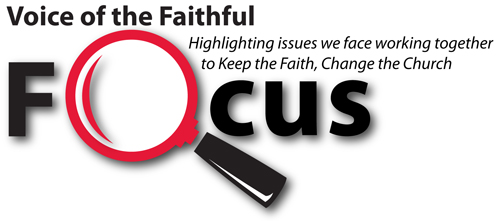 TOP STORIES
TOP STORIES
A historic resignation
“When Msgr. Roger Grundhaus wanted to baptize his niece’s baby in the cathedral of a nearby diocese, there was the simple matter of getting a letter from his bishop affirming that he was a priest in good standing. Bishop Michael J. Hoeppner of Crookston (who recently resigned at Pope Francis’ request) obliged the retired priest, a former vicar general of his diocese. ‘He is a person of good moral character and reputation,’ he wrote in 2012. ‘I am unaware of anything in his background which would render him unsuitable to work with minor children.’ But contrary to that blanket statement, Hoeppner had already heard allegations directly from a diaconate candidate, Ron Vasek, that Grundhaus had molested him in the early 1970s. And so, attorney Jeff Anderson confronted the bishop with the letter during a deposition: ‘That’s a lie, isn’t it?’” By Paul Moses, Commonweal
- Hoeppner apologizes to Crookston Diocese during farewell Mass, By Marie Wiering, Catholic News Service, in National Catholic Reporter
Podcast: Inside the secret process of appointing a Catholic bishop
“When Father John Wester received a call just before 8 a.m. Mass, he had no idea it would be the nuncio, the pope’s ambassador, phoning to tell him he would be the next auxiliary bishop of San Francisco. ‘I think my knees were knocking,’ now-Archbishop Wester of Santa Fe, N.M., told America’s ‘Inside the Vatican’ podcast. The bishop said his parishioners told him, ‘You don’t look very good, Father!’ and I said, ‘Well, I don’t feel very good right now!’ It was kind of a shockeroo.’ Archbishop Wester’s story is not unusual. Most bishops are appointed without ever knowing they were being considered for the job and are caught by surprise when chosen. The bishop selection process is perhaps the most secretive hiring process in the world, shielded from both the candidate and the priests and people he will serve.” Inside the Vatican, by Colleen Dulle and Gerard O’Connell, America: The Jesuit Review
- Can the Catholic Church find a better way to choose bishops? By Ricardo da Silva, S.J., America: The Jesuit Review
- You also may be interested in the VOTF proposal for a pilot to model better lay participation in the selection process.
Parishes cannot obstruct sex abuse investigations
“The Catholic Church’s struggle to eradicate the cancer of clergy sex abuse is on trial today. The community at St. Sabina church in Chicago is trying to obstruct the investigation of their much-beloved pastor Fr. Michael Pfleger on charges he sexually molested minors, according to a report in the Chicago Sun-Times. ‘Once again this week, there was an organized effort through the St. Sabina website to employ inappropriate and intimidating tactics to put pressure on the Archdiocese of Chicago and the Independent Review Board (IRB) as the case of Father Michael Pfleger is being processed,’ Chicago Cardinal Blase Cupich wrote in a letter to the administrators of the parish.” By Michael Sean Winters, National Catholic Reporter
Panel: Racism compounds the clergy sex abuse crisis for Black Catholics
“As a kid, Fr. Bryan Massingale was an altar server at his predominantly-Black Catholic school. When he served at Masses with one priest in particular, nuns who worked at the school kept a close watch on Massingale and the other boys, never leaving them unattended. Years later, Massingale saw that priest’s name on a list of clergy credibly accused of sexual abuse. It dawned on him that the sisters were trying their best to protect him and other children. ‘If not for the efforts of those sisters, I could have been one of that man’s victims,’ said Massingale, a professor of theological and social ethics at Fordham University, in a panel on clergy sexual abuse in Black Catholic communities.” By Madeleine Davison, National Catholic Reporter
Synods will make the difference
“Over the years, we have begun to discover some differences between Jesus and the church: Jesus has credibility. The reputation of the church, on the other hand, teeters … Until finally, the renewal of the church has been swamped in regalia, clericalism and wealth … The church is again in need of reform and repentance, of growth and grace. It is being called in this era to embrace the whole church rather than simply a segment of it. The implication of that is that the church, too, as well as society, must move beyond clericalism, sexism and institutionalism, not to mention the emphasis on organization often at the expense of the people who identify and depend on it.” By Joan Chittister, National Catholic Reporter
Click here to read the rest of this issue of Focus …
Calendar
AUSCP (Association of U.S. Catholic Priests) is providing highlights from their annual Assemblies on Mondays, April 12 – June 14th, 2021, from 3:00 – 4:30 PM EDT. Each session includes one hour of keynote speaker highlights from the given year’s Assembly, followed by discussion. The last session on June 14 will offer an opportunity to begin a conversation around this year’s Assembly theme, Where Do We GO from Here?, scheduled for June 21-24, in Minneapolis, MN.
Fr. Bob Bonnot is the host for the sessions. Your webinar registration will trigger an email reminder 1 day prior to each session with the Zoom log-in credentials, which will be the same for all sessions. You can register for the webinars by clicking HERE.
These are the remaining sessions in the series.
May 10 – 2016 Assembly – Proclaiming the Gospel of Joy in a Year of Mercy, speakers: Dr. Massimo Faggioli and Sr. Carol Zinn
May 17 – 2017 Assembly – Addressing Racism in Our Fractured Society, speakers: Fr. Bryan Massingale and Cardinal Wilton Gregory (then Archbishop of Atlanta)
May 24 – 2018 Assembly – The Church in a Post-Modern World: Spirituality and Ministry in a Secular Age, speakers: Bishop Robert McElroy and Fr. Richard Rohr
May 31 – 2019 Assembly – God’s Priestly People: The Baptized & Ordained, speakers: Cardinal Blase Cupich, Dr. Richard Gaillardetz and Sr. Norma Pimentel
June 7 – 2020 Assembly – Our Catholic Faith in the Political World, speakers: John Carr, Sr. Carol Keehan and Archbishop John Wester
June 14 – 2021 Assembly (preview)- Where Do We Go From Here? The speakers in this session will be all those who help begin the conversation toward answering the question.
Comments?
Please send them to Siobhan Carroll, Vineyard Editor, at Vineyard@votf.org. Unless otherwise indicated, I will assume comments can be published as Letters to the Editor.
Reminder: Please notify office@votf.org if you change your email address.
© Voice of the Faithful 2021. All Rights Reserved.
